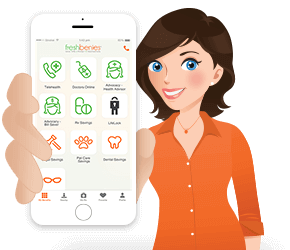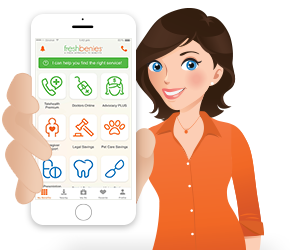4 SECRETS FROM A HEALTH INSURANCE EXPERT
Do you understand how your health insurance works? When I was 24 years old and started working my first job, I couldn’t understand it at all!
That’s funny because I was working for a large insurance company and my degree was in Health Administration. But, I was raised and got my degree in Canada and you probably already know they have a very different system than the US. I’ve now been in the US health insurance industry for 21 years and I’m still learning.
There are as many theories about the future of health insurance as there are names for Healthcare Reform: Obamacare, Affordable Care Act (ACA), PPACA (Patient Protection and Affordability Care Act: pronounced P-Paca, which sounds like something an Alpaca does behind a barn). Right now, it’s confusing and we don’t have all the answers for how we’ll get insurance in 2014 and beyond.
Regardless of where you get it, these 4 secrets and tips will still help you now and in the future!
Secret #1: I don’t trust insurance companies, either.
I’m not alone! Each quarter, the Temkin Group conducts a “customer experience” survey. The Q1 Temkin Experience Rating lists Health Plans second to the bottom (slightly above TV Service Providers, but below 17 other industries – even Airlines?!).
I don’t blindly trust everything insurance companies tell me. To add to that, I don’t trust that any claim/bill/invoice from a doctor/hospital/testing facility is correct, either.
Why? Because even though it’s a small percentage of the time they’re incorrect, the size of that error can be huge.It’s worth me questioning it - especially with today’s insurance plans where I am responsible for so much more of the cost.
Don’t get me wrong - I absolutely believe everyone should carry health insurance. Because when we have a bad year (and sooner or later, most of us will), it can keep us from losing our house {insert other major assets you stand to lose here – don’t forget ‘the farm’ or your prized collection of Star Wars memorabilia}.
All I’m saying is don’t blindly accept every bill that comes through your mailbox!
Secret #2: The price is never the price until you ask. Twice.
Have you ever dissected one of those claims documents from your health insurance company? My last one looked like this:
Billed Amount Covered Amount
Annual Physical: $200.00 $118.90
Preventive Care: $40.00 $9.59
EKG: $60.00 $25.07
Lab Services: $131.00 $53.53
TOTAL: $431.00 $207.09
And then you think: “Hey, I like to save like the next guy, but seriously – how’d they come up with this?”
Is it a game? Not exactly, but it's like every other industry that has a “Retail price” and a “Sale price.”
Are they just guessing at what to charge? No. It’s a very intricately calculated and contracted pricing system.
How should you look at this? If you have insurance, ignore the Billed Amount. That’s the false “retail price” number.
Why does it have to be this way? It’s like a backwards game of The Price Is Right. Imagine you’re a doctor. The insurance company will pay you what you charge. Unless it’s over the maximum amount they deem appropriate (AKA the covered amount). In that case, they’ll only pay that much. Now imagine you’re a doctor who works with a dozen insurance companies whose prices all fluctuate.
So as a doctor, how do you win at the game? You bill WAY over the real amount to ensure you’re paid fairly.
Let’s put you back in your role as a patient looking at the bill with 5 or 10 or 50 items listed (ever seen a claim for a hospital stay?). What should you do?
If you don’t have insurance: 1) ask for a cash-paying price BEFOREhand and 2) Afterward, ask if all the listed services are correct.
If you have insurance: 1) ask the insurance company, the doctor, the hospital, etc. if all the listed services are correct and 2) Because the rules and prices continually fluctuate, ask again.
Really? Yes, and keep reading….

Secret #3: I ask for help. You should, too.
Of course you should ask for help - especially when you’re personally on the hook for hundreds or thousands of dollars.
In recent years, big organizations have hired ‘advocacy’ companies whose whole job is to help employees find their way around the complex games. They do all kinds of homework to help:
**Schedule appointments and organize procedures
**Help resolve insurance claims
**Organize medical bills and review for accuracy
**Work with your insurance company
**Get cost estimates
**Assist with eldercare planning
**Assist in the transfer of medical records.
The companies that do this typically hire experts like nurses and insurance claims specialists who help Americans navigate “the system.” If your company has one of these support lines, use it! If not, it’s available as part of a freshbenies card for purchase by individual members or by all sizes of employers.
During my physical last year, when I thought my lab tests were billed incorrectly, I just asked them to make those calls for me. They did. It was awesome! And don’t plan a major procedure without getting advice from these experts. They can do your pricing research saving time and money, and they can help organize the whole thing.
Secret #4: I have an advisor. You should, too.
I don’t do my own taxes and I don’t manage my own stock portfolio. These tasks are necessary, but so complicated and technical that I want someone who knows what they’re doing in my corner!
So, my last piece of advice: get the input of a health insurance agent (also called a broker) to give advice on the best insurance for you! Usually, your cost is exactly the same whether you have their help or not. And it appears the confusion will get worse before it gets better: the draft version of the new health insurance application is 21 pages, with a 60-page instruction booklet!
You should use an agent if you….
**buy insurance for yourself or your family.
**are self-employed.
**are a business owner and you provide insurance for your employees (if you’ve got 50+ employees, ask if commissions are built-in or not in your state; then be sure they are earning every dime you pay in commission).
**have a possible employment change (who doesn't?). If you get your insurance through an employer today, keep this tip in mind in case that ever changes.
**will be buying insurance through an “Exchange”/“Marketplace” (online portals the government is building) next year.
There! You’ve gotten all (OK, most) of the secrets out of me! Now it’s your turn…what secrets can you spill? What tips do you have for navigating healthcare for you and your family?
















